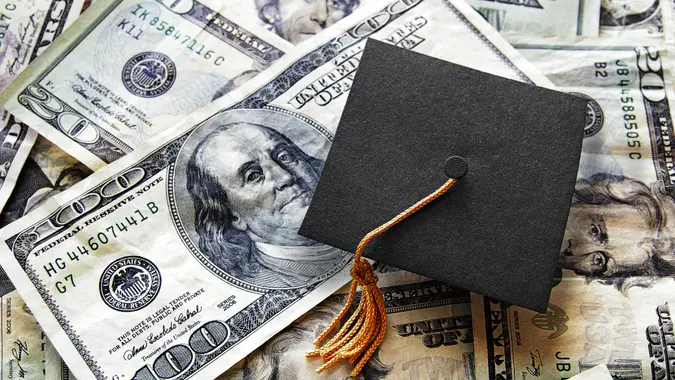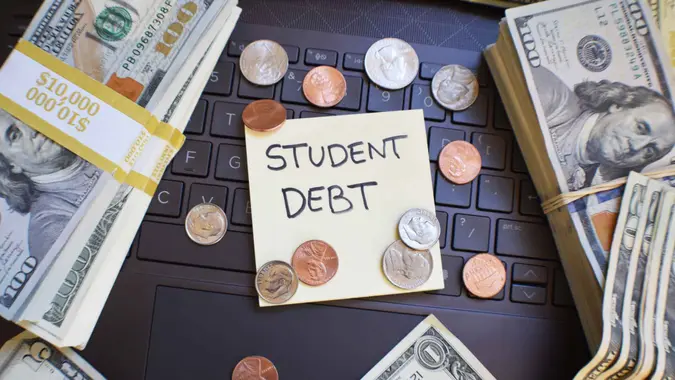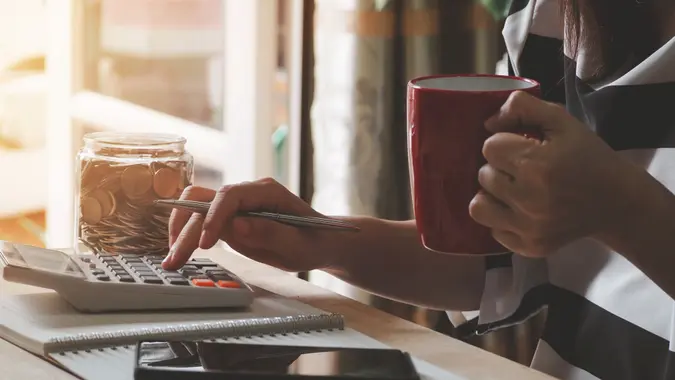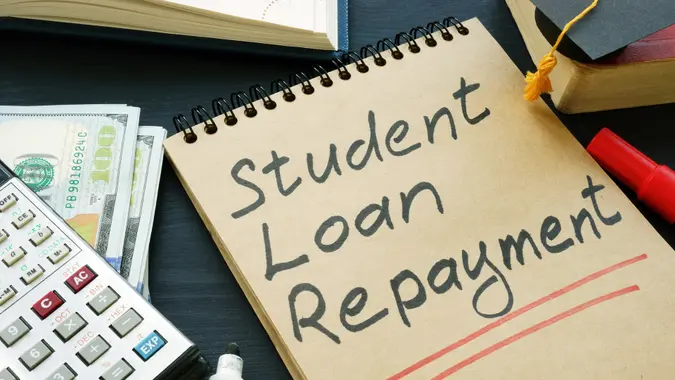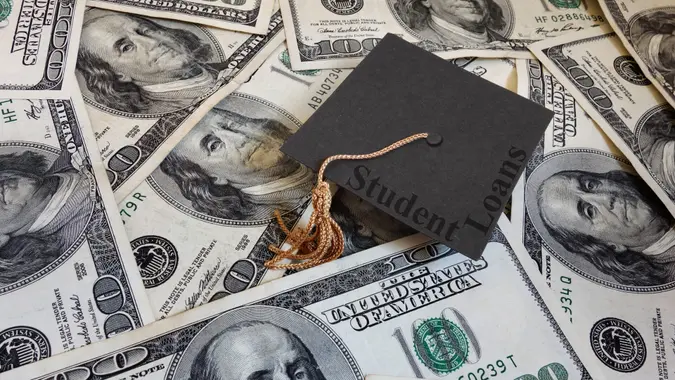Top Economist Predicts Student Loan Payments Will Spark Recession — Will That Happen?

Commitment to Our Readers
GOBankingRates' editorial team is committed to bringing you unbiased reviews and information. We use data-driven methodologies to evaluate financial products and services - our reviews and ratings are not influenced by advertisers. You can read more about our editorial guidelines and our products and services review methodology.

20 Years
Helping You Live Richer

Reviewed
by Experts

Trusted by
Millions of Readers
Economist David Rosenberg said that the resumption of student loan payments coupled with the Federal Reserve’s rate hikes will fuel a consumer-led recession, according to Insider. But while this might affect the economy, some experts don’t share that view, saying that other factors might come into play.
Speaking about a potential recession, Rosenberg said that he thinks it will start at the consumer level, and we’ll see the first signs of this after the student loan forgiveness program ends in the coming months.
“So, I think that it’s going to be consumer-led,” Rosenberg told CNBC, according to Business Insider.
Student loan repayments, which paused during the pandemic, are set to resume soon, with loan interest resuming starting on Sept. 1, 2023, and payments will be due starting in October.
While this will put a dent in millions of Americans’ budgets, it might also affect the economy at large, as the average monthly student loan payment is $503, according to the Education Data Initiative- money that won’t be flowing in other parts of the economy.
And this sentiment was also reflected in a survey by exchange-traded-funds (ETF) firm Global X, which found that beyond the personal impact this will have on millions of borrowers, 70% of Americans believe it will also have an impact on the U.S. economy, as GOBankingRates reported.
It there’s a recession, it won’t be due to the resumption
Yet, some experts believe that while the country might enter a recession-although the odds have been decreasing-it won’t be due to the loan payment resumption.
“A number of well-known economists have estimated that restarting student loan payments would take $70-200 billion out of the economy,” said Michael Micheletti, chief communications officer at Unlock Technologies. “Typically, taking this amount of supply out of the economy could pose a reason for recession concern.”
But according to him, in the current environment, rising interest rates, rising childcare costs and rising housing costs are more likely to cause issues next year. “It’s more likely that households will experience stress and “personal” recessions as consumers grapple with student loan payments,” he added.
Not a recession, a return to normalcy
Other experts, meanwhile, noted that while we are not out of the woods yet after the economic turmoil of the last three years, it is unlikely that the resumption of student loan repayments will become the triggering mechanism of a wider recession.
“The resumption of payment obligations in October is simply a return to pre-Covid normalcy,” said Phil Magness, senior research faculty and director of research and education at the American Institute for Economic Research. “This may mean exercising a little more thrift in the monthly budget for some, but it is not unexpected. If anything, the changes temper an artificial boost to consumption caused by keeping the loan payment suspensions in place well past their original purpose.”
No recession at all
Finally, some experts believe that the resumption of payments won’t be a catalyst for a recession, and the odds of an actual recession are slim to none, at this point.
“I do not believe that student loan payments will spark a recession,” said Michael Wagner, co-founder of Omnia Family Wealth. “At most, they would be one part of a larger trend of people becoming more mindful of their discretionary spending.”
Wagner added that he is not convinced that we are headed into a recession.
“If the job market were much weaker, I might be more inclined to say that the resumption of student loan payments would be a drag on the economy, but I do not think it would push us over the edge into a recession,” he said.
Wagner explained that he is in the camp of those who believe the economy will experience a soft landing — as long as job numbers remain strong despite the high inflation, we will not see much disruption in the economy.
“The talk of a potential recession may be causing some people to reduce their discretionary spending, but we may also be seeing a rolling recovery. This means that some sectors of the economy, such as tech, may be feeling the effects of a recession, while other sectors, such as healthcare, may be doing well,” he said.
On the contrary, Wagner said that right now, with the economy still moving along and the job market looking strong, “it seems to me that now might actually be a good time to resume student loan payments.”
 Written by
Written by  Edited by
Edited by 








